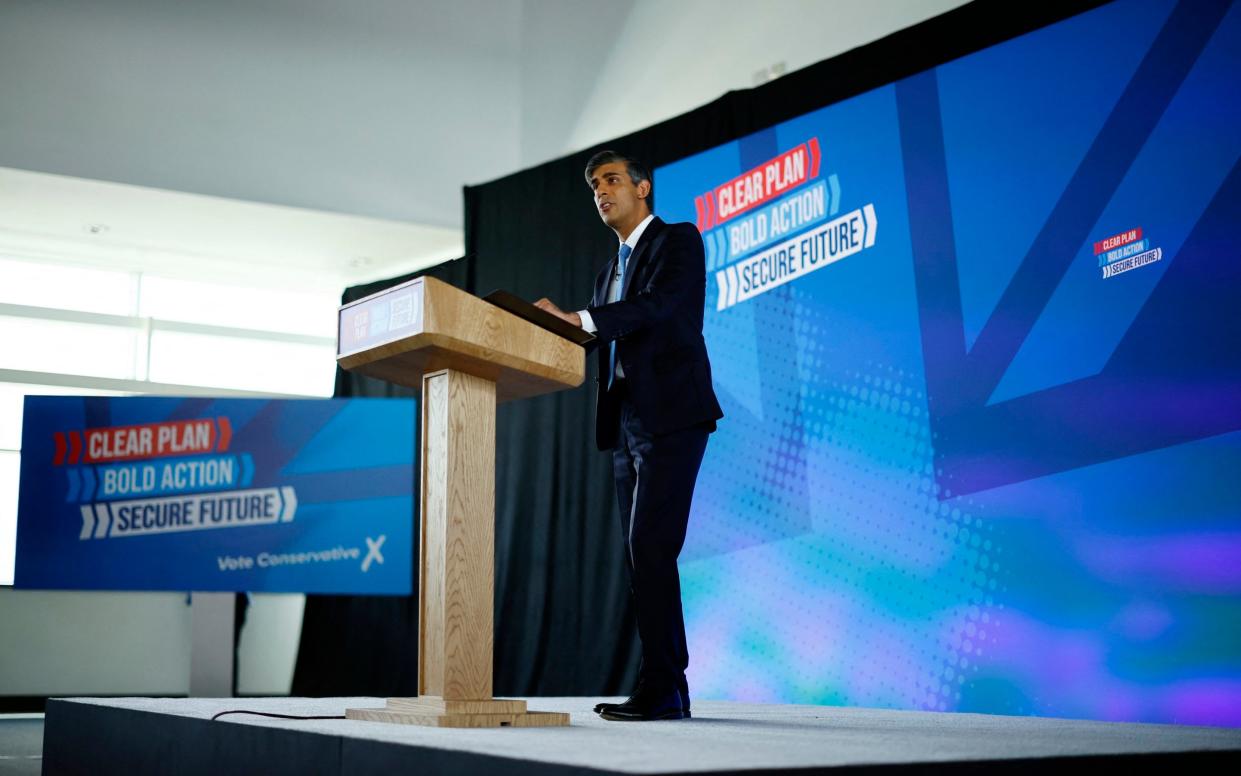There may only be one path left for Sunak to avoid total disaster

There are a few reasons why the academics and pollsters are counselling caution when reacting to YouGov’s poll placing Reform UK ahead of the Conservatives for the first time.
First, in statistical terms, the result is not very different from the last one, which placed Nigel Farage’s party just one point behind; a small lead is well within the margin of error when the two parties are this close. Second, YouGov is using new methodology which “hasn’t been tested in this sort of context before”, according to Dr Will Jennings of the University of Southampton.
But neither of these explanations will be that comforting for CCHQ (not least because the pollster’s old methodology might have favoured Reform UK even more). Politics is a narrative business. The question isn’t what impact this should have on the Conservative campaign, but what impact it will have.
The most obvious one is that there will likely be even more pressure from some quarters for the Conservatives to focus on “uniting the Right” – and likely more of the sort of ill-discipline we saw earlier this week from Andrea Jenkyns, who put out a leaflet sporting a picture of Nigel Farage and no mention of the Conservative Party.
According to ConservativeHome’s latest survey of party members, a majority would favour some sort of deal with Reform UK if one were available, and giving Farage the Tory whip should he be elected to the House of Commons, a finding which will further encourage those voices.
Yet such a deal is currently not on the table, even if Sunak wanted one. All he can really do would be to try and focus his campaign even more on right-wing voters who might defect to Reform. Yet our panellists do not think that would be a good idea: they narrowly favour focusing on Labour and the Liberal Democrats, the parties which are threatening to take many more Conservative seats.
Perhaps that stance, superficially contradictory as it might seem, is informed by feedback on the doorstep. Tory canvassers tell me the party’s best hope of shoring up its vote lies in targeting the “Don’t Knows”, disaffected Conservative voters who have not yet decided to go elsewhere and are open to reasons to stick with their local MP.
If the Prime Minister loses focus on that key group in order to woo voters he has already lost, this poll may yet prove the smuggler’s lantern that takes the Tory Party totally onto the rocks.

 Yahoo News
Yahoo News 
